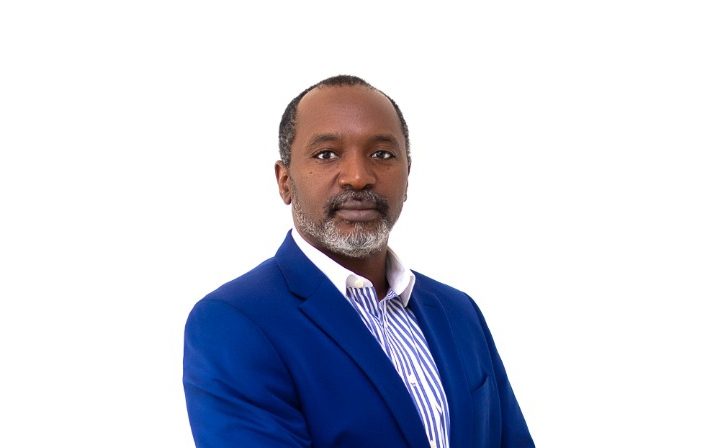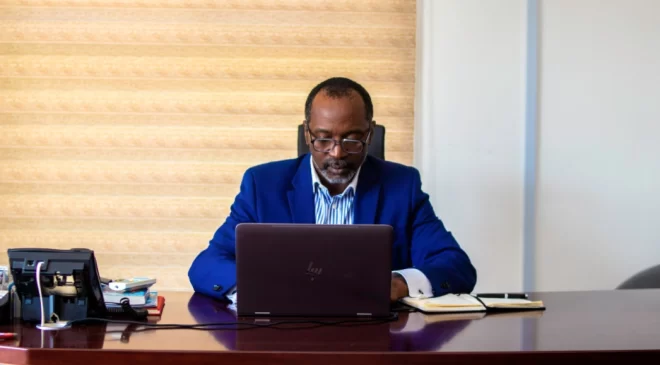Published
10 months agoon

While lying within 30 kilometres of a fibre network or mobile broadband coverage area, 43% of schools in Rwanda – or 1,796 schools – still lack internet access. G.S. Nyagihunika, a school in the Bugesera District on the outskirts of Rwanda’s capital, Kigali, is a shining example of how broadband internet connectivity, facilitated by Giga, is empowering learners, educators, and the surrounding communities.
Giga is an initiative by the International Telecommunication Union (ITU) and UNICEF that aims to connect every one of the world’s schools.
In 2021, Giga partnered with Liquid Intelligent Technologies (Liquid), providing the former with anonymised data to support Giga’s work to map schools’ location and connectivity status in Africa.
This partnership benefitted the remote schools in Kenya as Liquid could share information with Giga about schools’ proximity to telecoms infrastructure and will help develop a connectivity monitoring platform.
While the example above is from Rwanda and Kenya, the message for other African countries, including Nigeria, is clear; connectivity is a critical step towards achieving digital equality and redefining growth and economic opportunity.
To accomplish this, private companies and government must align their strategies and commit to sharpening their investments towards solutions, services and infrastructure that will overcome legacy challenges and allow all citizens to embrace a digital future.
Nigeria’s National Broadband Plan, developed by the Federal Ministry of Communications and Digital Economy and launched in 2020, is committed to enhancing the availability of connectivity throughout the country with the long-term goal of transforming the country into a hub of digital innovation and achieving a target for internet penetration of 70% by 2025.
This is a major milestone that needs to be achieved, and we have our fair share of challenges. The first is finding the investment and partnership that would allow the country to transform its infrastructure and redress its connectivity limitations.
The other challenge is talent. The digital economy relies on this infrastructure, not just in terms of allowing organisations and individuals to get online and participate on the global digital business stage, but in terms of growing a digitally literate population capable of this level of participation.

Currently, due to limited access to connectivity, Nigeria is still in its digital infancy.
These are not, however, insurmountable challenges. On the one hand, the huge youthful population in Nigeria is a vast well of untapped talent that presents an opportunity.
According to Statista, more than half of the population is under the age of 25, which means the country has a repository of young potential engineers, software developers, and technology innovators.
By focusing on providing the youth with connectivity and access to digital skills development, the country is building a highly capable digital foundation.
However, this requires a significant talent development pipeline and a commitment to ensuring talent has the tools it needs to thrive.
This is where innovative public-private partnerships (PPPs) can reframe the connectivity lag. Through strategic PPPs the country can expand its digital foothold by leveraging infrastructure, cloud capabilities, cyber security, and intelligent services.
Already, there has been solid forward momentum on both the government and private fronts.
The recent auction of the 5G spectrum has increased the available amount, and numerous companies have already started to roll out 5G sites which will drive connectivity access and quality; while the NCC’s Wireless Cloud Project is committed to providing a platform for supporting connectivity expansion to education institutions.
Private capital investment has been coming in from MNOs and telcos in this space.
For example. Liquid has acquired a fibre pair on the Equiano sea cable, allowing us to transport traffic up to 12 Terabits, bringing a much-needed increase in international connectivity in Western and Southern Africa.
Private companies such as Liquid Nigeria are engaging with the government to accelerate the achievement of connectivity and broadband targets by 2025.
Besides the capacity on Equiano, we have laid over 150 km of fibre in the country, with active PoPs in Lagos, Abuja and Port-Harcourt, and this feat has been achieved in less than a year of launching in Nigeria.
By providing the reach, tools, and virtual platforms required to grow businesses through a fibre network that spans more than 110,000 kilometres across Africa, companies like Liquid can contribute to the elimination of the digital divide by playing a tangible role in connecting people, companies, and the country, ensuring no one is left behind.
PPPs are key to removing the obstacles that inhibit innovation and growth within Nigeria, and at Liquid, we look forward to partnering with the government to ensure connectivity becomes an affordable and accessible commodity to its citizenry, just as we have in other African countries where we have operations.














